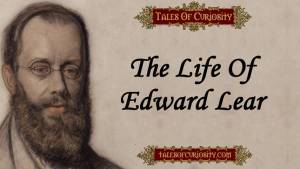| ||||||
| Running Time: | 4:27 | Release Date: | ||||
| As a companion to our video about the life of Edward Lear, we present two of his nonsense poems. We begin with his immortal 'The Owl And The Pussy-cat' followed by 'How Pleasant to Know Mr. Lear'. | ||||||
About The Video |
In this video we present two nonsense poems by Edward Lear.
The first poem is the most famous of Edward Lear's work "The Owl and the Pussycat". It was first published in 1871. Edward Lear wrote the poem for Janet Symonds who was the young daughter of one of his friends.
| The Owl And The Pussycat |
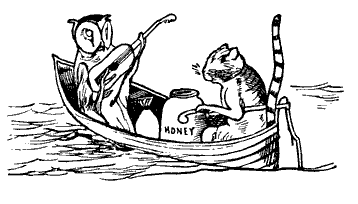 |
I The Owl and the Pussy-cat went to seaIn a beautiful pea green boat, They took some honey, and plenty of money, Wrapped up in a five pound note. The Owl looked up to the stars above, And sang to a small guitar, 'O lovely Pussy! O Pussy my love, What a beautiful Pussy you are, You are, You are! What a beautiful Pussy you are!' |
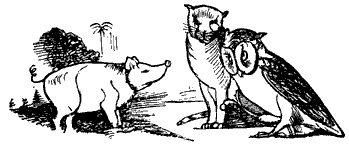 |
II Pussy said to the Owl, 'You elegant fowl!How charmingly sweet you sing! O let us be married! too long we have tarried: But what shall we do for a ring?' They sailed away, for a year and a day, To the land where the Bong-tree grows And there in a wood a Piggy-wig stood With a ring at the end of his nose, His nose, His nose, With a ring at the end of his nose. |
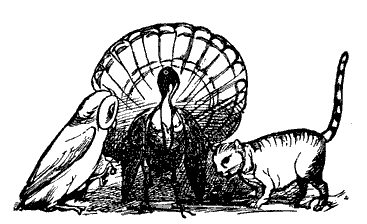 |
III 'Dear pig, are you willing to sell for one shillingYour ring?' Said the Piggy, 'I will.' So they took it away, and were married next day By the Turkey who lives on the hill. They dined on mince, and slices of quince, Which they ate with a runcible spoon; And hand in hand, on the edge of the sand, They danced by the light of the moon, The moon, The moon, They danced by the light of the moon. |
The second poem is a self-portrait "How Pleasant To Know Mr. Lear!"
It was written by Edward Lear, for a young woman friend, who told him this was said in a conversation with one of her friends.
| How Pleasant To Know Mr. Lear! |
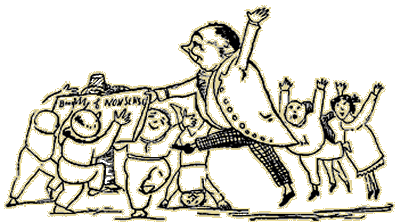 |
"How pleasant to know Mr. Lear!" Who has written such volumes of stuff! Some think him ill-tempered and queer, But a few think him pleasant enough. His mind is concrete and fastidious, His nose is remarkably big; His visage is more or less hideous, His beard it resembles a wig. |
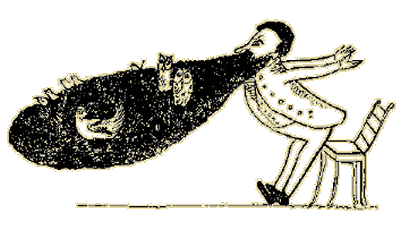 |
He has ears, and two eyes, and ten fingers, Leastways if you reckon two thumbs; Long ago he was one of the singers, But now he is one of the dumbs. He sits in a beautiful parlor, With hundreds of books on the wall; He drinks a great deal of Marsala, But never gets tipsy at all. |
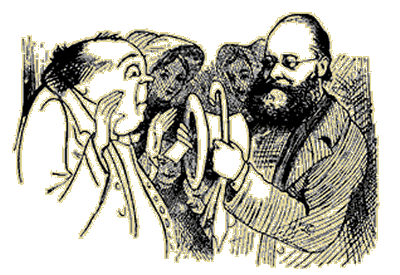 |
He has many friends, lay men and clerical, Old Foss is the name of his cat; His body is perfectly spherical, He weareth a runcible hat. When he walks in waterproof white, The children run after him so! Calling out, "He's come out in his night- Gown, that crazy old Englishman, oh!" |
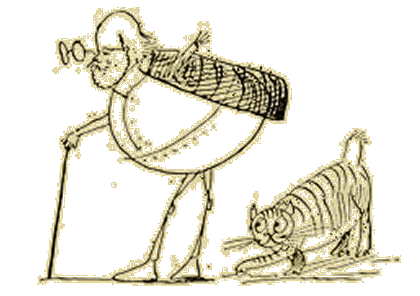 |
He weeps by the side of the ocean, He weeps on the top of the hill; He purchases pancakes and lotion, And chocolate shrimps from the mill. He reads, but he cannot speak, Spanish, He cannot abide ginger beer: Ere the days of his pilgrimage vanish, How pleasant to know Mr. Lear! |
Similar Videos |
The Life Of Edward Lear
Edward Lear famous for his nonsense poems including limericks was also a very talented painter and had a rather strange cat called Foss.
Limericks By Edward Lear - Part 1
Part 1 of a collection of Limericks by Edward Lear, published in 'A Book of Nonsense'. Includes '... an old person of Dutton' and '... an Old Derry down Derry'.
Limericks By Edward Lear - Part 2
Part 2 of a collection of Limericks by Edward Lear, published in 'A Book of Nonsense'. Includes '... an Old Man of Vienna' and '... an Old Man with a beard'.
Limericks By Edward Lear - Part 3
Part 3 of a collection of Limericks by Edward Lear, published in 'A Book of Nonsense'. Includes '... an old person of Dover' and '... an Old Man of the Wrekin'.
Limericks By Edward Lear - Part 4
Part 4 of a collection of Limericks by Edward Lear, published in 'A Book of Nonsense'. Includes '... an Old Man, on whose nose' and '... an Old Man of Peru'.
Limericks By Edward Lear - Part 5
Part 5 of a collection of Limericks by Edward Lear, published in 'A Book of Nonsense'. Includes '... an Old Person of Tring' and '... an Old Man with an owl'.
Limericks By Edward Lear - Part 6
Part 6 of a collection of Limericks by Edward Lear, published in 'A Book of Nonsense'. Includes '... a Young Lady whose chin' and '... a Young Lady whose bonnet'.
More Lear Limericks - Part 1
Part 1 of a collection of even more limericks by Edward Lear!! The eleven here include: '... an Old Man at a Junction' and '... an Old Man on the Humber'.
More Lear Limericks - Part 2
Part 2 of a collection of even more limericks by Edward Lear!! The twelve here include: '... an Old Man in a Barge' and '... an Old Person of Sark'.
26 Nonsense Rhymes And Pictures
Although Lear called these little snippets of nonsense 'rhymes', none of them actually do! However they represent some of his best and most bizarre work!
The Duck And The Kangaroo
Although, not one of Lear's better known works, this is a great fun. The duck buys socks, solving the problem of his feet being too cold for the kangaroo.
Calico Pie
This piece of melancholy nonsense must rank as one of the strangest poems ever written. If you understand any of this, please explain it to the rest of us!
Interesting Links |
